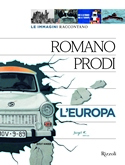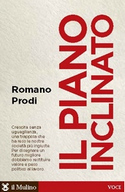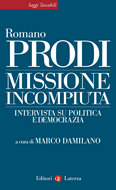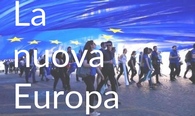Dopo l’Irak, i terroristi minacciano Sinai e Sahel, possiamo vincerli solo con un coordinamento internazionale
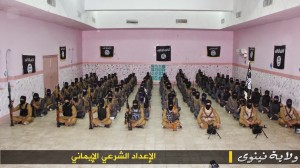 Romano Prodi: terrorism in Sinai and in Sahel is no less dangerous than in Irak. It must be answered with an international strategy
Romano Prodi: terrorism in Sinai and in Sahel is no less dangerous than in Irak. It must be answered with an international strategy
Intervew by Hend Elasyed Hani to Romano Prodi on Al-Ahram Daily of December 4th 2014
There is still an open dialogue with Europe in search of a strategy to counter terrorism in the region, in light of the coordination led by Egypt in the Mediterranean. Finally, the first step came with the announcement of the Egyptian Italian participation against terrorism during the visit by President Sisi.
In an interview for “Al-Ahram” over the phone, Romano Prodi, former United Nations envoy to the Sahel, reveals that the level of the threat require to move upwards the scale of the risk.
Prodi is one of the most influential international figures on the scene by virtue of its current location, as well as his former job positions. Previously, he served as Chairman of the Council of Ministers in Italy, and was appointed President of the European Commission. A dialogue between him and President Abdel Fattah Sisi took place in July over the phone, in the framework of international coordination on the Libyan situation.
How can the Egyptian-Italian convergence be effective in addressing the crises the region, particularly terrorism?
”I think that terrorism has changed in quality. We have to be very careful against terrorism in Iraq and Syria, or it may extend to the surrounding areas and become a greater threat, and this of course affects Italy itself. I think we have to work together to apply progresses in economy and raise living standards for all peoples of the region. There should be a reaction to stop the spread of terrorism, at the same time with the development of society”.
Do you think that there is still a chance to combat terrorism in Libya?
”As far as Libya is concerned, there should be a broad agreement among the various forces in the battlefield. Since a nation with two governments and many armed forces cannot exist. This is a kind of chaos. The problem is not only to take action against terrorism, but also to re-build a new Libya. I emphasize here the importance of the role of Egypt and Algeria. There is a task for Egypt and Algeria which is very important, and that task can’t be fulfilled by Europe or by the United States or by other powers only. There is a need to develop a real initiative with the contribution of these two important countries by virtue of their presence in the region. In this case; military operations alone can never be enough. Military operations may help, but the problem lies in building a society that includes all sects”.
Three years ago, did you think that the Arab Spring would become what it has become?
”The Arab Spring took different directions, so it is difficult to talk about the Arab Spring. Every nation has taken its own destination. Though we are still watching what approach Tunisia will undertake; but it is true that they managed to build a different consensus that was hard to find in Egypt. So it is difficult to develop a definition of the Arab Spring that includes all the different experiences in the region”.
Are you satisfied with the European role in the Mediterranean?
”Not at all, when I was president of the Commission, there was a common engagement policy of the European countries in the Mediterranean and this task was a priority. I Proposed the creation of a so called Ring of friends that includes all countries around Europe. I proposed the establishment of a Bank of Mediterranean with participants from the north and the south involved on an equal basis. I proposed the establishment of a joint University of Mediterranean comprising an equal number of students from the north and from the south, in order to build a new relationship between us. Honestly, this was my contribution on the engagement with the Mediterranean ten years ago. There must be a new European policy towards the Mediterranean and this should be a priority”.
Egypt is involved in a fierce war against terrorism in the Sinai region, what support could be provided by the international community to Cairo?
”This is one of the main risks that we are facing now. Everyone is talking about terrorism in Iraq, but there are two other important fronts where we must fight terrorism. Namely, the Sinai and the African Sahel. The situation in these areas is no less dangerous than that in Iraq. Terrorism is no longer a local terrorism, but an international terrorism. This difference is becomes evident when we compare the current situation to events that took place before. The terrorism threat now is no longer limited to countries where it is already evident. Since terrorism is an international threat, it must be answered with an international strategy”.








